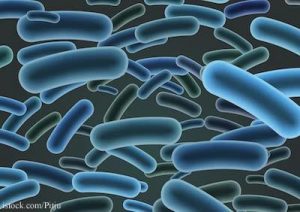In the June 2013 issue of Vital Signs, the Centers for Disease Control and Prevention (CDC) is trying to protect the public against Listeria monocytogenes, the third leading cause of death from food poisoning. About 1,600 people contract listeriosis every year. At least 90% of those patients are either pregnant women and their newborns, people over the age of 65, and those with weakened immune systems.
 Most people who are sickened by Listeria bacteria need to be hospitalized, and about 20% of those people die. We know the foods that are most commonly associated with this bacteria. Everyone should know their risk of food poisoning, know how to select, prepare, and store food safely, and follow safe food preparation guidelines.
Most people who are sickened by Listeria bacteria need to be hospitalized, and about 20% of those people die. We know the foods that are most commonly associated with this bacteria. Everyone should know their risk of food poisoning, know how to select, prepare, and store food safely, and follow safe food preparation guidelines.
One of the big issues with Listeria bacteria is that symptoms may not appear until 70 days after exposure. That makes the source of the bacteria very hard to trace. And Listeria contaminates foods that aren’t heated before eating, such as cheeses, deli meats, and sprouts. It can also grow at refrigerator temperatures, making it difficult to control.
In 2011, there was a nationwide Listeria monocytogenes outbreak linked to cantaloupes grown and processed at Jensen Farms in Colorado. In that outbreak, 147 people were sickened and 33 people died. And in 2012, another Listeria outbreak was linked to imported Frescolina ricotta salata cheese. In that outbreak, 22 people were sickened and four people died.
To prevent Listeria food poisoning, the government is using environmental investigations to help make food safer. Cantaloupe growers are reviewing their hazard control practices, and there will be more government inspections at cantaloupe farms. Public health officials are trying to identify outbreaks quickly by using special laboratory tests. New safety measures in the Food Safety Modernization Act may help prevent food from becoming contaminated in the first place.
Consumers can protect themselves by following a few steps. Those in high risk groups should avoid risky foods, such as raw milk, raw milk cheeses, hot dogs, luncheon meats, cold cuts, or deli meats without heating them to 165 degrees F. Avoid refrigerated pate or meat spreads, soft cheeses, and refrigerated smoked seafood. Scrub produce with hard rinds, such as melons, before cutting. Wash all produce under cool running water. Avoid cross-contamination, and separate uncooked meats and poultry from vegetables, cooked foods, and ready to eat foods.




